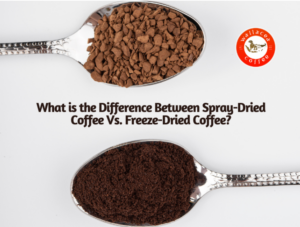
Lately, there’s been a lot of talk about the health benefits of coffee beans. It stirs up discussions among folks – from coffee addicts to health gurus. But what’s the real deal?
In this piece, we’re diving into the nitty-gritty of the science behind the supposed health bonuses of coffee beans. We’ll sift through the facts and myths, then we will uncover how sipping on those beans might affect your overall health. Let’s spill the beans, shall we?

One prevalent myth surrounding coffee consumption is that it’s harmful to health. Many believe consuming coffee contributes to various health issues such as heart disease, high blood pressure, and digestive problems. While excessive consumption of coffee may indeed lead to adverse effects in some individuals, numerous studies have debunked the notion that moderate coffee consumption is inherently harmful.
Coffee beans are rich in bioactive compounds such as antioxidants, polyphenols, and caffeine, which have been linked to various health-boosting properties. According to the National Cancer Institute, antioxidants help neutralize harmful free radicals in the body, reducing oxidative stress and inflammation associated with chronic diseases such as cancer or heart disease. On the other side, Polyphenols, another group of bioactive compounds found in coffee, has been shown to have anti-inflammatory neuroprotective effects. It potentially decreases the risk of neurodegenerative diseases like Alzheimer’s and Parkinson’s, as stated in the study by the National Center for Biotechnology Information.

Research suggests that moderate coffee consumption may offer several potential health benefits, including:
In a nutshell, coffee is more than just a tasty pick-me-up—it’s packed with perks for your health too! If you sip on your favorite brew regularly, it could help keep your brain sharp and your body feels good. Plus, it might even lower the risk of serious health issues like heart disease and certain cancers.

Now that you’re knowledgeable of the impressive health benefits of coffee, it’s time to indulge in a cup that not only satisfies your caffeine cravings but also takes your coffee experience to the next level. At Wallacea Coffee, we offer a unique solution with our wild civet coffee. We source it directly from Indonesian coffee farmers and crafted from beans that are naturally defecated by wild civets, our coffee ensures a gentle experience for even the most sensitive stomachs. Plus, you’ll still enjoy the same energizing kick you love from traditional coffee.
When sourcing the finest civet coffee beans, look no further than Wallacea Coffee. As a trustworthy direct-trade coffee supplier, we ensure a steady supply of top-notch wild civet coffee. Reach out today to inquire about wholesale civet coffee orders or buy directly on our website. Let’s brew something amazing together!





PT Jaffarindo Internasional Indonesia
Cityloft Sudirman lt 19 unit 1926 Jl. K.H. Mas Mansyur No.121, RT.13/RW.11, Karet Tengsin, Tanah Abang District, Central Jakarta City, DKI Jakarta 10220, Indonesia.


+1 (626) 202-9253 (10 a.m – 4 p.m.) (PST)
No Comments